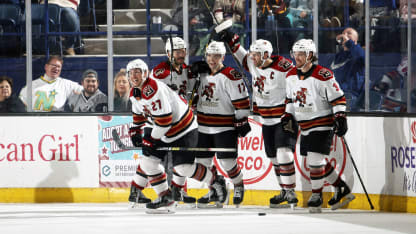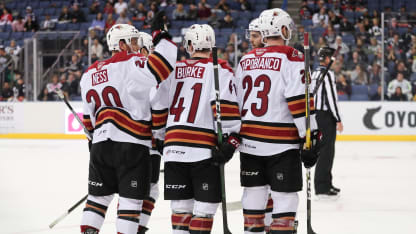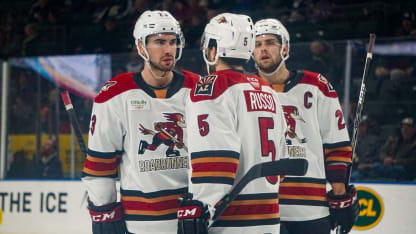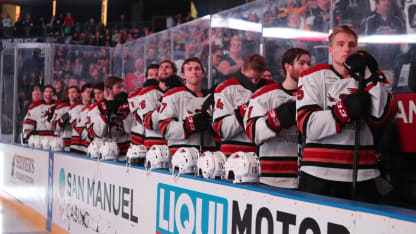"We had some stretches where maybe our lineup was a little thinner than our coaches wanted," Sullivan said. "For our players to fight through -- we had to put players in different situations in different roles for short periods of time to make sure the team had success. We went through a couple bumps there in early January to almost the first week of February, but we came out of it. And we were coming out of it with flying colors. So, what stood out to me was the resiliency in our group."
Sullivan says he and his coaching staff - Jay Varady, John Slaney, Steve Potvin, Brady Morgan -- continue to analyze and to try to implement the system used by the parent club.
"That doesn't stop," he stressed.
"I think there's a lot of symmetry between our coaching staffs," Sullivan said when discussing the staffs of both teams. "They're not just co-workers but they're really good friends, bouncing ideas off of each other. There's a lot of cohesiveness in their working styles and coaching styles."
And the 2016 relocation of the Coyotes' AHL affiliate to neighboring Tucson continues to pay dividends.
"Being so close, we reap the benefits of being able to be way more hands-on with our hockey club," Sullivan said. "And for our staff, they don't have to travel across the country to watch them play. You don't have to plan it, it just falls in your lap, being an hour and 40 minutes down the road.
"On the players' side, being connected to the club, and I guess even from the fans' perspective too, being able to have a connection to both teams so close. When you're across the country and there's a three-hour time change, it's hard to stay tied-in and have that connectivity to both clubs."
But the connectivity is more than what is provided by Interstate 10.
"We're connected - all three - from the business side, the management side, the players and fans side," Sullivan said. "It's a win-win-win for all three."



















